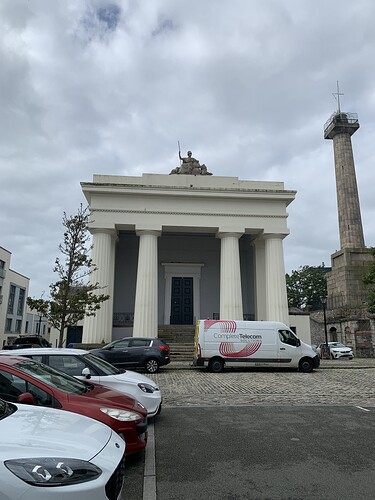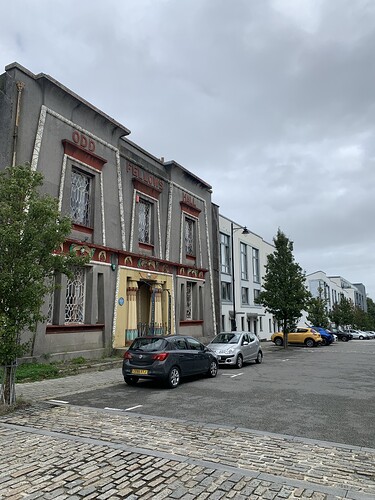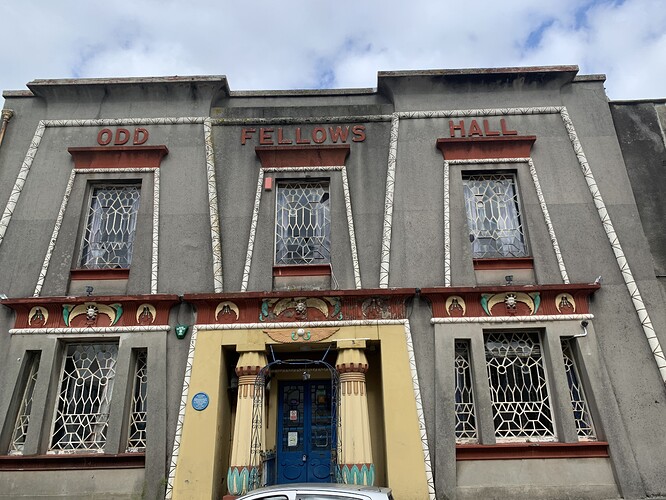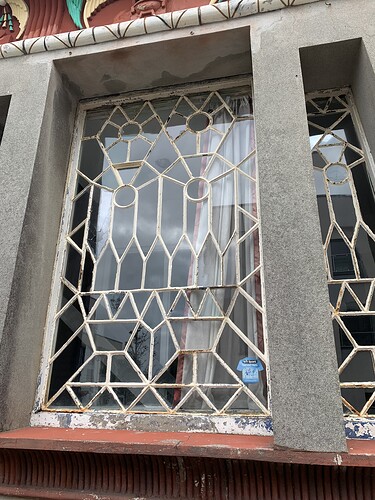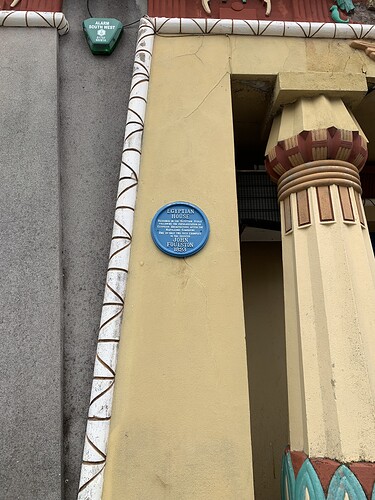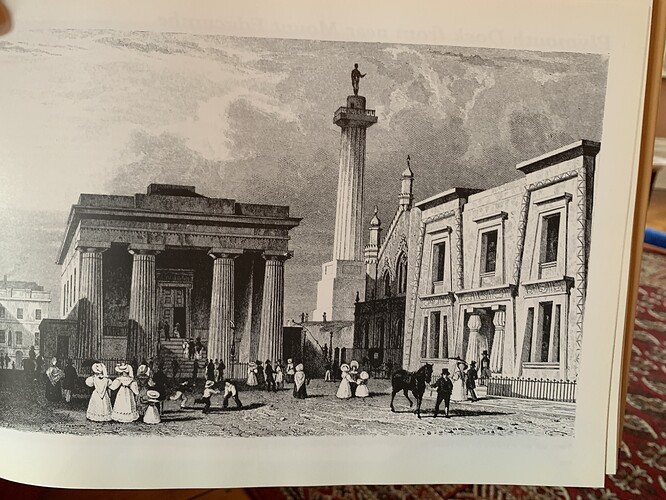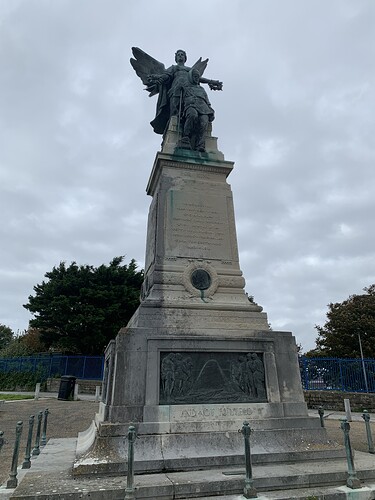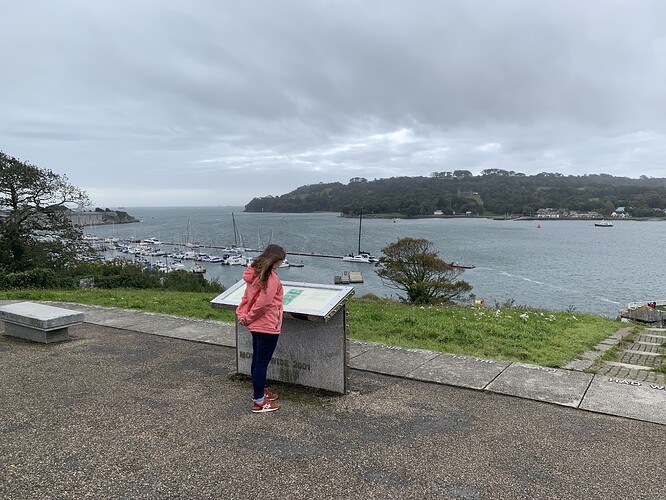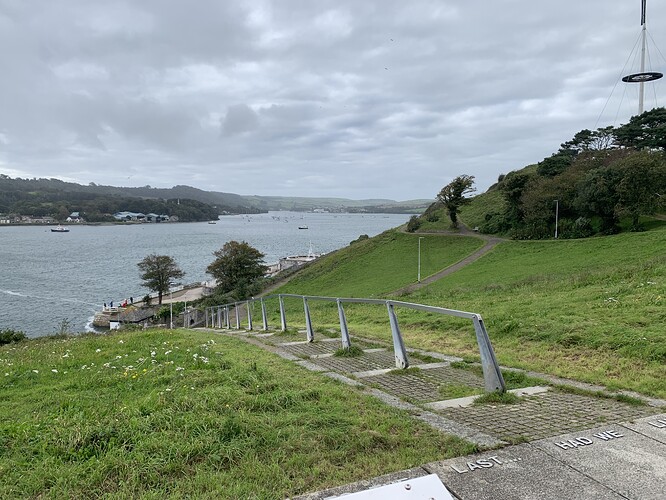We had a lovely walk around Devonport, a part of Plymouth not subject to the Luftwaffe-inspired reconstruction, and also a rare part of the city not sewn up by historical freebooter and all-round asshole Francis Drake.
My partner showed me the old Devonport town hall, inspired by the Parthenon, and Oddfellows Hall, built during the Egyptian craze. They’re both 200 years old and a fascinating surprise to be found around the corner in a residential part of the town.
Also in the background is the Devonport Column, inspired by Trajan’s column, to celebrate the changing of the town name from Plymouth Dock to Devonport (although it merged with Plymouth a century later). They were all designed by the same architect, John Foulston. Here’s a picture of how it looked in the 19th century in our book on Victorian Plymouth.
Oddfellow’s hall has been, over the centuries, a place of learning, administration and a library, filled with ancient and varied texts. This week, there’s a meat raffle, karaoke and bingo (please excuse the spelling; it is no longer a place of learning).
From there we walked down to Mountwise, overlooking the channel to the Dark Lands. There we found a memorial to Robert Falcon Scott, born and raised just a few streets from our current house.
His stoic and very British failure has certainly won the PR battle against Amundsen’s victory, and in some ways I find that fair. Scott wasn’t entirely the fool I thought he was, but was under much more pressure from his sponsors to do more than just win the race to the pole. In contrast, Amundsen was far more ruthless and duplicitous in his victory than I expected. Scott bravely facing his death on the ice made for a much more compelling story even in Amundsen’s lifetime.
The monument is surrounded by some of the last words Scott wrote, and help to show why his story has endured.
‘Had we lived, I should have such a tale of hardihood, endurance and courage of my companions which would have stirred the hearts of every Englishman. These rough notes and our dead bodies must tell the tale.’
The very last words he wrote, at least as I recall, are not at the monument (‘it seems a pity, but I do not think I can write any more.’)
A really lovely walk, and I hope it helps to show there’s more to Plymouth than codpieces, bowls, and Francis Effing Drake.
